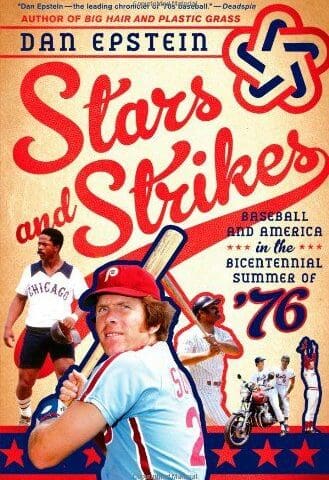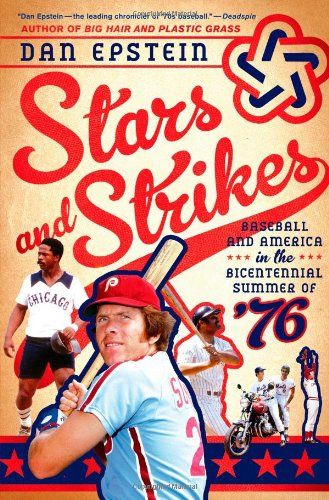

 In the most recent Coen brothers film, Inside Llewyn Davis, the protagonist — a struggling Greenwich Village folksinger in 1961 — is based, very loosely, on Dave Van Ronk, a little-known (outside folk music circles) but influential folk-singer who helped define the folk music revival of the late fifties, and mentored the young Bob Dylan and others during the early 1960s when what Van Ronk called the “great folk scare” took off. To understand the atmosphere of that music scene, the Coens relied on Van Ronk’s memoir (coauthored with Elijah Wald), The Mayor of McDougall Street. Van Ronk recounts his serious involvement with various left-wing factions of the period.
In the most recent Coen brothers film, Inside Llewyn Davis, the protagonist — a struggling Greenwich Village folksinger in 1961 — is based, very loosely, on Dave Van Ronk, a little-known (outside folk music circles) but influential folk-singer who helped define the folk music revival of the late fifties, and mentored the young Bob Dylan and others during the early 1960s when what Van Ronk called the “great folk scare” took off. To understand the atmosphere of that music scene, the Coens relied on Van Ronk’s memoir (coauthored with Elijah Wald), The Mayor of McDougall Street. Van Ronk recounts his serious involvement with various left-wing factions of the period.
Little of Inside Llewyn Davis refers to the political atmosphere that permeated the Greenwich Village folk scene of the early 1960s. The film is filled with despair and loneliness, but the folk music world of that period was filled with hope and engagement.
» Read more about: Protest Music Is Always Blowin’ in the Wind »



For those with Internet access, free online classes from Ivy League universities, taught by some of the world’s top professors, are just a click away. But to a grassroots coalition of organizations representing hundreds of thousands of college and university educators, there’s a reason this promise seems too good to be true.
The Campaign for the Future of Higher Education (CFHE), comprised of the California Faculty Association (a financial supporter of Capital & Main), the National Education Association, the California Community College Association and the American Federation of Teachers, along with dozens of other education and labor groups, is urging the public to not believe the hype. The CFHE is also asking the top three promoters of massive open online courses, commonly known as MOOCs, to tone down their claims and come clean about their main goal – to make a profit.
Online courses have been available since the1990s,



Under the deceptively bland headline, “House GOP Releases Ag Budget,” the center-right Politico website on Monday examined a proposed House Republican budget for agriculture and food safety programs. After noting that the bill would give a measly $3 million increase to efforts to regulate the derivatives market ($62 million less than the Commodity Futures Trading Commission requested), writer David Rogers reported that the GOP measure would make it easier for schools to adopt lower nutritional standards for their meal programs — and for starch bombs like white potatoes to be included as vegetables that are covered by a Women, Infants and Children supplemental feeding program.
Only way down, in the story’s fourth paragraph, did Rogers mention that, “in a surprising twist,” the House Republicans required that a pilot program to feed school children from low-income families during summer vacation be restricted to kids living in rural Appalachia. In other words,
» Read more about: House Conservatives Block Food to Needy City Kids »



The release of former Treasury Secretary Tim Geithner’s new book, Stress Test — his self-serving account of the Obama administration’s effort to address the nation’s economic crisis and mortgage meltdown — has triggered a great deal of controversy and debate. Was the Obama economic team too cozy with, or too sympathetic, to Wall Street? Was the stimulus package large enough? Did Geithner, Larry Summers and Ben Bernanke stifle the views of dissidents within the administration — especially Council of Economic Advisors chair Christina Romer and FDIC chair Sheila Bair (perhaps not surprisingly, both women) — who urged bolder approaches?
But on at least one issue, there is a growing consensus: The Obama administration did too little, too late, to help troubled homeowners, who faced plummeting home prices and the risk of foreclosure.
Obama’s closest advisors wrongly assumed that as the economy improved, Americans would be better able to buy homes and pay the mortgage on existing homes.
This week a DVD of The Abbott and Costello Show‘s 1953-54 season was released amid nostalgic fanfare. The old comedy team is mostly remembered today because of its immortal “Who’s on First” baseball routine – an almost Beckettian example of miscommunication that’s been enshrined in Cooperstown’s Hall of Fame. However, the two Jersey boys also enjoy an afterlife in conservative circles through a very similar sketch, “The Loafers Union,” in which straight man Bud Abbott proudly announces to sidekick Lou Costello that he has landed a “loafing” job at a bakery. From this spare description, fans of “Who’s on First” can pretty much guess the kind of linguistic linguine the two former Vaudevillians will make of this double entendre:
Abbott: I got a job at a bakery.
Costello: Good! What’re you doing there?
Abbott: Loafing.
Costello: Loafing?
Abbott: Loafing!
» Read more about: Abbott & Costello’s Vintage Union Bashing »


 People who hate government get a lot of aid and comfort from America’s news media, which tend to give big business a party pass when it comes to incompetence and corruption. While any government agency – from Congress to your local school board – is fair game for attacks, business institutions usually come under an investigative spotlight only if the news story has already generated a lot of public heat.
People who hate government get a lot of aid and comfort from America’s news media, which tend to give big business a party pass when it comes to incompetence and corruption. While any government agency – from Congress to your local school board – is fair game for attacks, business institutions usually come under an investigative spotlight only if the news story has already generated a lot of public heat.
For example, when the government released its report on Shell’s behavior in the Arctic, newspapers put it among the top news stories. Similarly, when the City of Los Angeles brought suits against a couple of the nation’s biggest banks for systematic lending abuses, this made the front section, although not the front page. Likewise, when an oil company paid $5.15 billion to clean up environmental contamination, it was big news.
For the not-so-big stories about corporate screw-ups,



What you are about to read is about the FCC and “net neutrality.” But not really.
As you probably know, the Federal Communications Commission is in the process of revising its rules and regulations for the Internet. It’s tried twice before and both times the telecommunications industry has (successfully) gone to court to get the rules tossed out.
One of the hottest topics is net neutrality – the idea that your Internet service provider has to treat equally whatever content is flowing through its tubes. This is important, because without net neutrality your ISP could strike separate deals with different content providers, allowing, say, Hulu to flow freely, but letting Netflix drip through at a slower pace. Or loading the Drudge Report quickly, but throttling Left Business Observer.
A secondary effect of ending net neutrality concerns what you pay to Time Warner (or AT&T or Verizon or Comcast) —
» Read more about: Net Loss: Why One FCC Commissioner Hates His Job »


 The 1970s are often regarded as a time of false promise (the great broom of Watergate merely clearing the way for Ronald Reagan) or hideous excess (leisure suits, disco, Chrysler LeBarons). Sports writer Dan Epstein sees the Bicentennial decade differently, however. To the author of Big Hair and Plastic Grass, they were nothing less than the end of professional baseball’s innocence. Epstein puts his finger on one year in particular as the turning point for both America’s Pastime and America itself. His new book, Stars and Strikes: Baseball and America in the Bicentennial Summer of ’76, conjures a time and a place where greed, injustice and American piety collided.
The 1970s are often regarded as a time of false promise (the great broom of Watergate merely clearing the way for Ronald Reagan) or hideous excess (leisure suits, disco, Chrysler LeBarons). Sports writer Dan Epstein sees the Bicentennial decade differently, however. To the author of Big Hair and Plastic Grass, they were nothing less than the end of professional baseball’s innocence. Epstein puts his finger on one year in particular as the turning point for both America’s Pastime and America itself. His new book, Stars and Strikes: Baseball and America in the Bicentennial Summer of ’76, conjures a time and a place where greed, injustice and American piety collided.
Against the backdrop of a newly resurgent New York Yankees team and the juggernaut known as the Big Red Machine, Epstein examines how an increasingly militant baseball players union fought for free agency – a fight that would lead to far-reaching consequences for the game.



Inequality. You’re probably hearing this word everywhere, and rightly so. In the U.S. today, the top one percent own about 38 percent of the financial wealth in America. The bottom 60 percent own 2.3 percent. So what are some of the forces shrinking the middle class?
A new report by the National Employment Law Project (NELP) finds that outsourcing is one of the central factors driving down wages and working conditions in the post-recession economy. The practice allows public and private employers to evade labor laws, avoid payroll taxes, push costs onto workers and shirk their responsibility to provide basic benefits. It also leaves workers in an ambiguous legal status with no clear path to hold their employers accountable for abuses like stolen wages.
The report, “Who’s the Boss: Restoring Accountability for Labor Standards in Outsourced Work,” shows that outsourcing is a shell game for employers trying to avoid accountability,


After more than a month of unsuccessful attempts to reach Lionsgate Entertainment CEO Jon Feltheimer through letters and phone calls, it was time to pay him a visit. Rank-and-file musicians wanted to discuss Lionsgate’s practice of offshoring its musical scoring to distant countries – something that limits local musicians’ ability to earn a living and deprives our communities of tax revenue.
On Tuesday union members and supporters of the American Federation of Musicians’ Listen Up! campaign — including professional musicians, labor allies, faith and community leaders — gathered in Santa Monica’s Stewart Street Park for a rally. The spirited event included AFM Local 47’s executive board and a supportive crowd of musicians representing members from across our union. We were joined in song by our fellow AFM members and Grammy nominees Lisa Haley and the Zydakats. We heard moving speeches from Santa Monica City Councilmember Kevin McKeown and other friends,
» Read more about: Musicians Bring Campaign to Stop Offshore Scoring to Lionsgate »